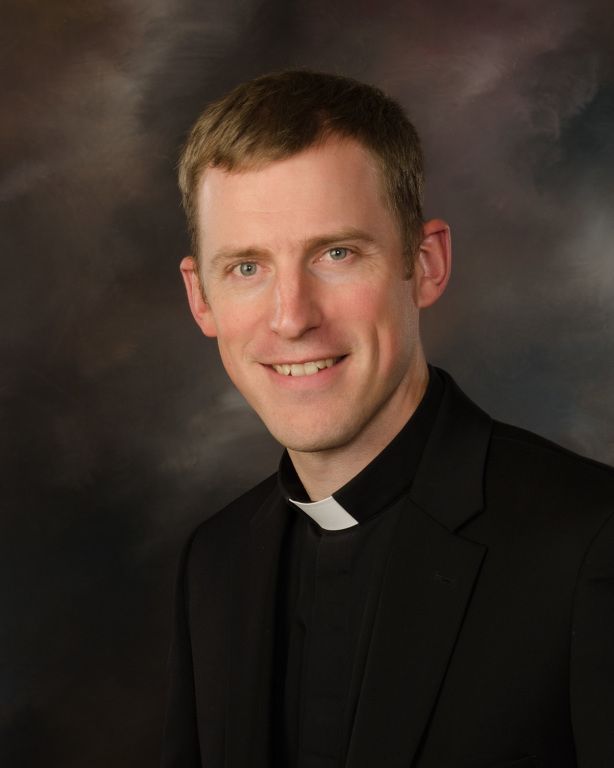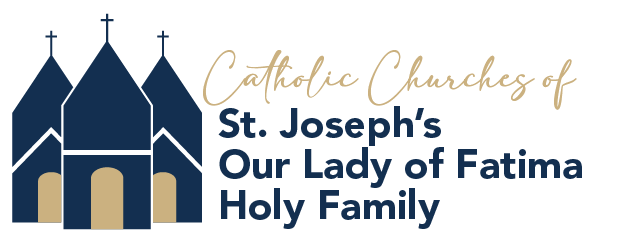Planning a Catholic Funeral
As Catholics we have a great treasure in our funeral rites and committal rites. Here are some guidelines regarding what ought to be done.
When a loved one has died you should work with a funeral home to make arrangements. We do not recommend working with groups like or similar to cremation society. While they may appear to be cheaper, they do not give you the service required to have a Catholic funeral.
The Funeral home will help you:
- Select a date and time for the funeral and burial
- Help coordinate musicians
- Help coordinate any meals or refreshments offered
- Help coordinate burial plots and markers etc.
- Help coordinate any military rites to be included
- Help with putting together and coordinating the obituary release
- Help with arranging the body or cremains and facilitating their transfer.
- Help with arranging any kind of program or handouts
The funeral home specializes in these services. The Church does not do these things and will direct you to work with your funeral home.
The Church will help you:
- Plan the funeral liturgy
- Celebrate a funeral Mass or funeral celebration outside of Mass
- Select readings, prepare readers and other ministers
- Celebrate the committal (burial)
- Provide location for the funeral and reception and visitation if desired
Realize that the funeral home and the Church have scheduled events that sometimes must be worked around. We want to serve you and help you, we will do our best to accommodate your needs.
There are several variances on the type of service that could be celebrated. Follow these general guidelines when choosing what route to take.
- For a practicing Catholic, it is most appropriate to have a Mass of Christian Burial.
- For a non-practicing Catholic it would still be good to have a Mass unless they specifically declared their desire not to have a Mass.
- For a non-Catholic, we could do a funeral service outside of Mass
- Even if someone doesn’t want a funeral, we could do a committal service at the graveside, but the Church encourages a funeral whenever possible.
- The funeral, whether it is a Mass or a service, should be a reflection upon Christ and how Christ is impacted the deceased. That is why we do not call funeral’s ‘Celebration of life’, because we are primarily celebrating what Christ has done. We are doing this on behalf of the person. This is why the Church asks that any remembrance or Eulogy this is offered should be a reflection on the person’s life in-light of their Christian Faith.
Planning a Funeral at one of our churches
If you would like to have a funeral service at one of our parishes, please have your funeral home make the arrangements. They will help you coordinate many of the details for the funeral.
The Pastor or Deacon will also meet with you to help with your spiritual needs. You can help plan a funeral liturgy for your loved one by choosing the scripture readings to be proclaimed at the Funeral.
Reading can be selected from the Catholic Funeral Readings guide below. You are not limited to these readings. If you have other scripture passages you would prefer, please talk to the priest/deacon about your choices. In the guide, you will find readings divided by the three readings in funeral liturgies: the first reading is from the Old Testament #1 - 9; the second reading is from the New Testament #10 - 28; and the Gospel #29 - 47. The psalm response after the first reading is sung by the cantor.
See the links below for a selection of readings that are often chosen for funerals, and a special directive if a family chooses to do cremation rather than a full body burial.
About Cremation
At a meeting of the clergy in the Brainerd Deanery, we found it important to offer some clarification on the practice of Cremation. There is confusion surrounding the practice of Cremation, so we are offering these thoughts to help all our parishioners as they make decisions regarding their final disposition, or that of their loved ones. Since the Church’s long-standing tradition has been a bodily burial, it still remains the preferred method of final disposition. When cremation is chosen, the Church does prefer that the body of the deceased be present for the vigil and the funeral mass, since the presence of the body better expresses the values which the Church affirms in these rites. In this scenario, following the funeral liturgy at the parish church, after the cremation is completed, the family would gather as soon as possible for the Rite of Committal at the cemetery. See the guide to cremation below.
RESOURCES

Contact
Fr. Elias Gieske
Pastor, Our Lady of Fatima, Holy Family, and St. Joseph’s Catholic Churches
218-546-6559
fr.elias.gieske@duluthcatholic.org

